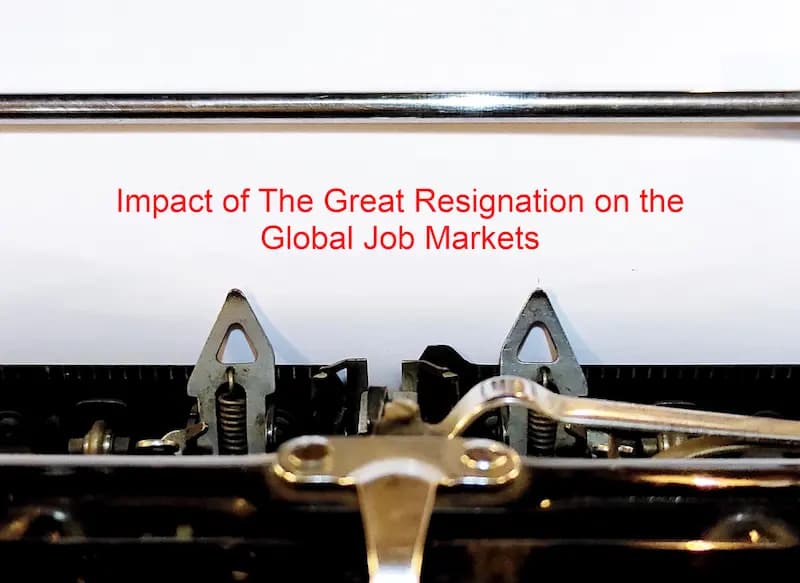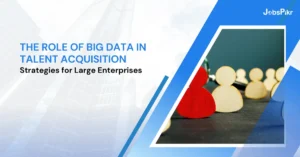The Great Resignation is a term coined for the ongoing economic trend wherein employees have voluntarily resigned from their roles in large numbers. General unhappiness due to insufficient compensation, toxic work environments, and long working hours have contributed to this shift that has taken the global economy by storm. In the US job market, a staggering number of workers left their jobs en masse due to terrible working conditions and unethical treatment from their employers.
Although the phenomenon began in early 2021 – a direct result of the pandemic – the resignation numbers continue to climb across the world.
A recent Microsoft survey comprising over 30,000 global workers found that 43% of employees are likely to consider changing or quitting their professions this year. 52% of Gen Z and Millennials are more likely to switch employers this year.
So, what does this mean for the job market? How does this global mass resignation movement affect employers and hiring trends? Let’s find out.
The Great Re-Evaluation
Collectively, employees are re-evaluating their priorities with new methods of working – an option recently available to them that was relatively unheard of before Covid-19. Prioritizing mental well-being, remote working, and flexible hours have become essential for the younger workforce.
Keeping this in mind, employers not only have to ensure candidates with the right skills are hired, but also provide the necessary environment to retain them. It isn’t uncommon for candidate expectations to be unmet in their initial months resulting in resignations for a better opportunity.
According to a global study by Owl Labs, 44% of companies do not allow remote work of any kind. 59% of respondents mentioned they would be more likely to choose an employer who offered remote work than those who did not.
Tackling the Great Resignation issue primarily requires a thorough understanding of the data on workforce expectations and the list of shortcomings organizations currently have. By seeing the existing gap in the company vs candidate mindset, appropriate measures to close the differences must be implemented.
The Job Market
The Great Resignation, also known as the Great Reshuffle in India, has contributed to a current unemployment rate of 6.5% in India as of October 2022. According to a report published by LinkedIn, job seekers have become pickier, viewing nearly twice as many job posts before applying in 2021 than they did in 2019*.
Although India has had a record 22% YoY growth in hiring as of June 2022, job seekers have strong sentiments toward finding companies that provide a healthy work culture and flexible timings. A completely remote or hybrid option where the employee can work at least two days from home remains a top priority for most professionals.
For the last two years in the US job market, essential roles in frontline operations such as healthcare took the brunt of the impact of mass resignations as workers’ well-being deteriorated by working in stressful conditions. Long hours, pay cuts and dealing with large crowds of people due to understaffing issues led to workers wanting a better professional life. Industries like manufacturing and finance also suffered as people want better pay for the work they deliver. The technology industry with high-stress roles has also seen a decline in numbers as employees are looking for organizations to meet their expectations rather than compromise.
The resignation data varies from industry to industry. Where IT, software, and construction industries have now seen green shoots in talent growth other industries such as education and retail aren’t as popular. This is a result of a combination of factors as job seekers now are not only looking for a paycheck. They are more selective about choosing companies, aiming for organizations that provide development opportunities and a defined career path along with a holistic approach to overall health.
Businesses failing to meet these new-age expectations have trouble filling up roles or retaining good candidates. This creates an unceasing cycle of hiring that has a massive impact on the company’s bottom line.
Combating The Great Resignation
Understanding the latest hiring trends and staying up to date with the current market research is paramount to ensuring a lasting relationship with your employees. Organizations globally are paying more attention to showcasing their company culture, providing a seamless interview and onboarding process by setting up a positive experience from the get-go.
The buck does not stop there; once the employee is onboarded, they must continue feeling happy and motivated to put out their best work. Team building events and mental health sessions have become an integral part of most companies’ employee engagement activities. Improving the overall culture from the top down by empowering people and understanding their varied needs isn’t unheard of anymore.
Putting your people first and ensuring that your work atmosphere doesn’t lead to burnout is a surefire way to increase employee retention. Investing in creating development programs tailored to reskill and upskill your workforce with the knowledge they stand to benefit from is essential.
Conclusion
Though the Great Resignation trend doesn’t seem to curtail anytime soon, as an organization there are several methods your company can implement to mitigate its effects on your team. Data-driven hiring and candidate transparency can immensely help to curb the pain of the hiring process.
Furthermore, using talent intelligence tools to your advantage puts you ahead of your peers in the market and provides you with a competitive edge. In the current climate, understanding the mindset of your candidates and their aspirations will not only help manage expectations but also highlight areas of improvement in your organization.
*The Reinvention of Company Culture report by LinkedIn




